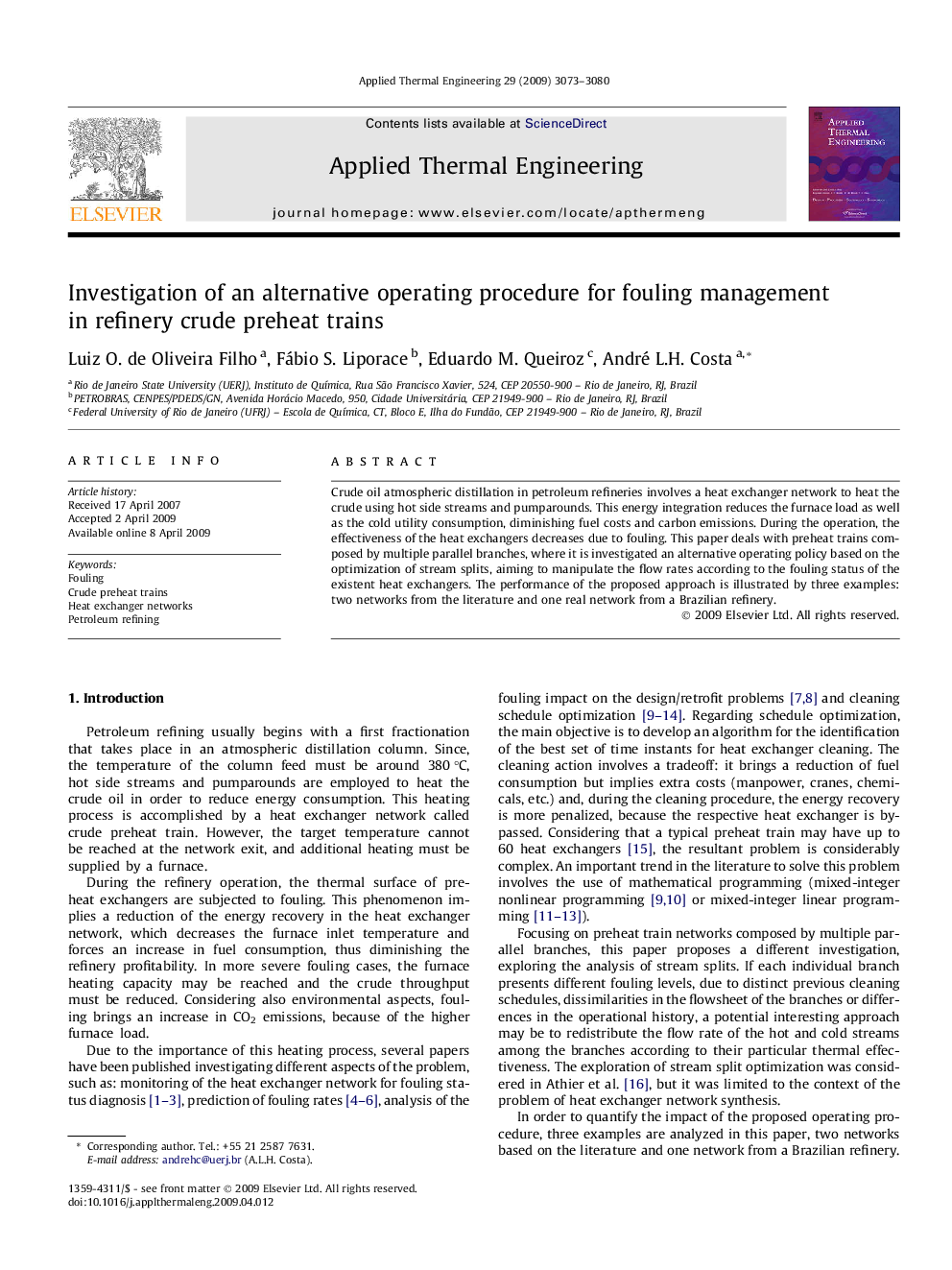| Article ID | Journal | Published Year | Pages | File Type |
|---|---|---|---|---|
| 648797 | Applied Thermal Engineering | 2009 | 8 Pages |
Crude oil atmospheric distillation in petroleum refineries involves a heat exchanger network to heat the crude using hot side streams and pumparounds. This energy integration reduces the furnace load as well as the cold utility consumption, diminishing fuel costs and carbon emissions. During the operation, the effectiveness of the heat exchangers decreases due to fouling. This paper deals with preheat trains composed by multiple parallel branches, where it is investigated an alternative operating policy based on the optimization of stream splits, aiming to manipulate the flow rates according to the fouling status of the existent heat exchangers. The performance of the proposed approach is illustrated by three examples: two networks from the literature and one real network from a Brazilian refinery.
